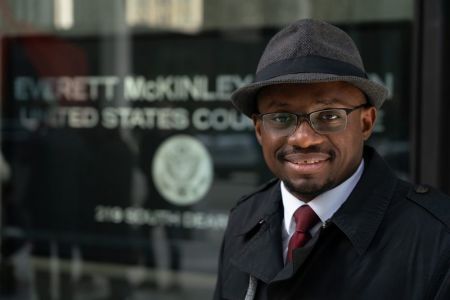Circuit Court 'Highly Receptive' to Saving IRS Clergy Housing Allowance, Becket Counsel Says

The Court of Appeals for the Seventh Circuit seemed open to arguments against an atheist group's lawsuit seeking to end a clergy housing tax allowance, according to a counsel with the religious liberty law firm Becket.
The Seventh Circuit heard arguments on Wednesday in the case of Gaylor v. Mnuchin, which centers on the Freedom From Religion Foundation attempt to have the IRS' parsonage allowance declared unconstitutional.
Becket is representing Chris Butler, a pastor based in Chicago, Illinois who filed a declaration in the case, arguing that if the parsonage allowance is struck down, his ministry will be greatly harmed.
Joe Davis, counsel at Becket, told The Christian Post in an interview on Thursday that he believed the "court appeared highly receptive to our arguments."
"We're confident that the panel members will understand that the parsonage allowance is fair tax treatment for ministers, not a unique benefit, and that there's no warrant for imposing crippling new taxes on churches and ministers across the country," said Davis.
Becket estimates that if struck down, churches across the United States will be burdened with an estimated $1 billion in additional taxes.
Davis explained to CP that this estimate comes in part from a report by the U.S. Department of the Treasury, which "estimates the housing allowance at $0.97 billion for 2018, and expects that it will actually exceed $1 billion by next year."
"Congressional estimates—for instance the Estimates of Federal Tax Expenditures for Fiscal Years 2016–2020, prepared by the Joint Committee on Taxation—likewise estimate the allowance at nearly a billion dollars annually," added Davis.
In 2011, the FFRF filed a lawsuit against 26 U.S. Code § 107(2), a law passed in 1954 that gave an exemption on clergy housing allowance.
"In the case of a minister of the gospel, gross income does not include ... the rental allowance paid to him as part of his compensation, to the extent used by him to rent or provide a home and to the extent such allowance does not exceed the fair rental value of the home, including furnishings and appurtenances such as a garage, plus the cost of utilities," reads the provision.
In 2013, U.S. District Court Judge Barbara Crabb for the Western District of Wisconsin ruled in favor of the FFRF, only to have the decision overturned in November 2014 by a three judge panel of the Seventh Circuit.
According to the panel, FFRF lacked the standing to sue because the atheist group had never officially asked for the exemption and thus had not been denied it.
In April 2016, the FFRF refiled their lawsuit after following the panel's order on standing, with Crabb ruling in October 2017 that the tax allowance was unconstitutional.
"Although defendants try to characterize § 107(2) as an effort by Congress to treat ministers fairly and avoid religious entanglement, the plain language of the statute, its legislative history and its operation in practice all demonstrate a preference for ministers over secular employees," wrote Crabb.
"A desire to alleviate financial hardship on taxpayers is a legitimate purpose, but it is not a secular purpose when Congress eliminates the burden for a group made up of solely religious employees but maintains it for nearly everyone else."
According to Davis, while there is no "hard deadline" for the Seventh Circuit to release a decision, they are expecting a ruling by early next year.





















